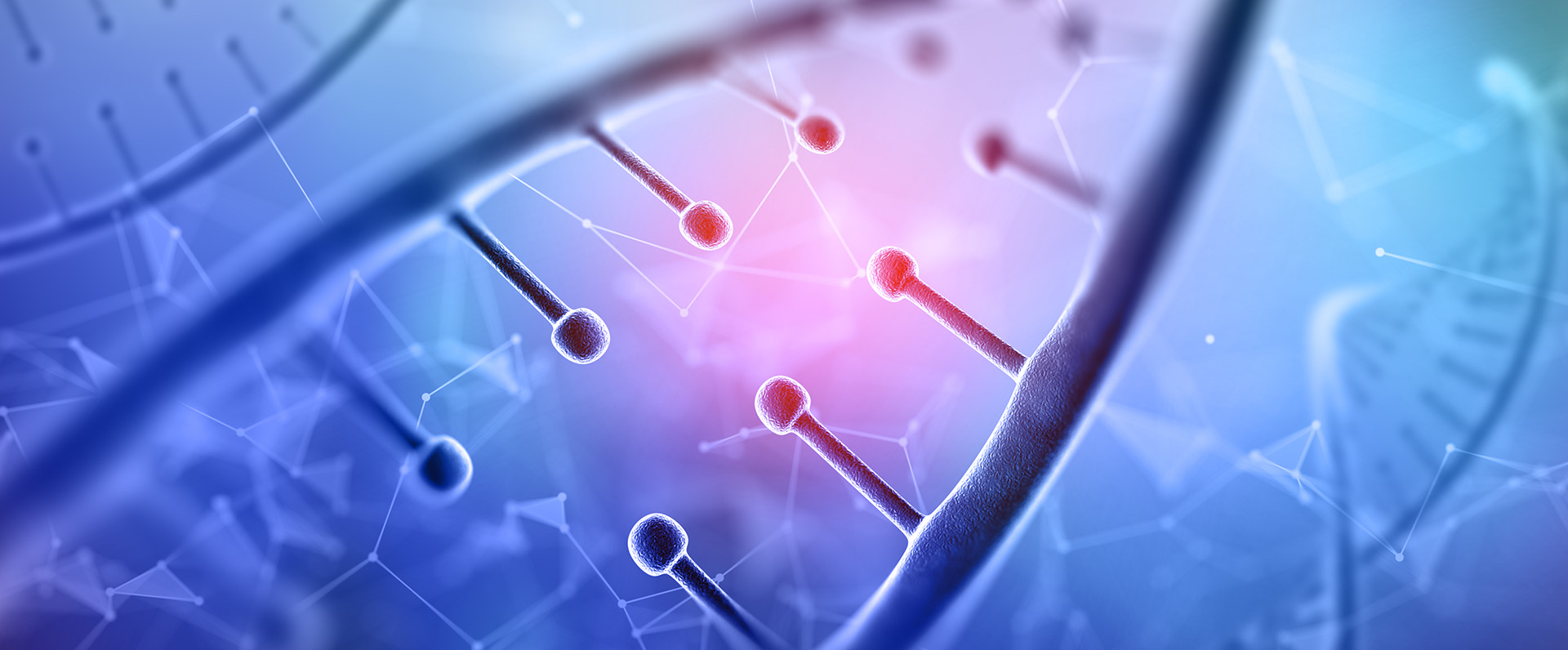About our genes
If we consider our body as a hardware, then our genes are the software which provides information to each cell in the body on how to function. Chromosomes are DNA-containing structures found inside the nucleus of the cell. DNA is the building block of genes and determine the functioning of the body. Genes also store information about an individual's physical characteristics such as height, eye, skin, and hair colour. In general, most people have 23 pairs of chromosomes (46 in total) – acquired half from the mother and half from the father, 23 from each.
The first 22 pairs of chromosomes are of same size and shapes in both genders. The final pair of chromosomes is known as the sex chromosome is different in males and females, and it determines the genetic gender of an individual at birth. A female possesses two X chromosomes whereas, the male possesses one X chromosome and one Y chromosome.
Chromosomal analysis (Karyotyping)
Karyotyping is used to determine the number, size, and shape of chromosomes in a given sample of individuals, providing a genome-wide picture of the individual's chromosome.
Chromosomal abnormalities like duplications, deletions, translocations, or inversions can be detected with the help of Karyotyping. It can also help in diagnosis of hereditary illnesses, birth deformities, and other immune system disorders. A person’s chromosomal structure can also be used to predict if future pregnancies would have a higher risk of miscarriage or abnormal births.
What is karyotyping used for?
Karyotyping is used to know if there are any unusual changes in chromosomes. It can help in the diagnosis of
• A genetic condition that runs in your family
• Specific signs that might be indicative of a hereditary condition
• Chromosomal problems in the unborn baby
• Male or female infertility
• Causes of miscarriages (more than two in a row before 20 weeks)
• Cause of stillbirths
• Certain types of cancer and blood disorders
• In making appropriate treatment decisions
• In detecting certain chromosomal disorders like Down syndrome (Trisomy 21), Edwards syndrome (Trisomy 18), Patau syndrome (Trisomy 13), Klinefelter syndrome (46XXY), Turner syndrome (45XY), Chronic myelogenous leukaemia, a classic 9;22 translocations.
Indications of Karyotyping on Products of Conception
After a miscarriage, the product of conception can be tested through karyotyping for:
• Recurrent spontaneous abortions
• Abnormalities on ultrasounds prior to pregnancy loss
• Intrauterine growth retardation
• Confirmation of aberrant prenatal outcomes
• Loss of pregnancy after In vitro fertilization (IVF).
Different tests in karyotyping
Karyotyping is done in several forms. They are:
1. Blood test – It is the most common way of performing karyotyping in adults, children and infants. A few millilitres of blood are taken and tested.
2. Bone aspiration and biopsy – It involves testing of samples of bone marrow in individuals with certain types of cancer such as leukaemia and blood disorders.
3. Amniocentesis – It involves testing of amniotic fluid, a protective fluid surrounding the developing foetus.
4. Chorionic Villus Sampling (CVS) – It involves testing samples of cells from the placenta, an organ that connects your baby with your uterus.
The type of karyotype test is recommended based on the reason for the testing. If you want to test the chromosomes of an unborn baby, amniocentesis or chorionic villus sampling might be required. If you want to test the chromosomes of an adult, child or baby then a blood test, buccal cavity swab or bone marrow test is advised.
Karyotyping test results
A cytogenetics expert with specialised training will perform chromosomal analysis. It takes around 1 to 2 weeks to get the karyotyping test results. Though certain chromosomal abnormalities will have common symptoms, the consequences and severity can vary from person to person and are frequently unpredictable.
Chromosome analysis may identify abnormalities such as the following:
|
Trisomy |
It is the presence of an extra chromosome (a third chromosome) instead of a pair. It is associated with several disorders, such as Down syndrome (a trisomy of chromosome 21), Patau syndrome (a trisomy of chromosome 13), Edward syndrome (a trisomy of chromosome 18), and Klinefelter syndrome (a male with an extra X chromosome, XXY). |
|
Monosomy |
It indicatesa missing or absence of a chromosome. Turner’s syndrome is one such condition which affects females who have one X chromosome rather than two is an example of monosomy. |
|
Deletions |
It indicates missing of genetic material or chromosomes. |
|
Duplications |
It indicates the presence of additional genetic material. |
|
Translocations |
In translocations, one of the Chromosomal fragments separates and reconnects to another chromosome. |
|
Genetic Rearrangements |
It is the presence of genetic material in an unusual location on a chromosome. |
Positive or abnormal test results
Positive or abnormal test results indicate that either you have an unusual structure or number of chromosomes (that is either one more or less of the normal 46 chromosomes in a cell). Abnormal results on the fetus may also mean that the unborn child has chromosomal abnormalities which can lead to poor pregnancy outcomes. A healthcare provider will help you understand what exactly your results mean.
Negative test results
Negative results indicate you have a normal number of chromosomes i.e., 46 chromosomes without any structural abnormalities in it.
Risk factors for chromosomal abnormalities
Advanced maternal age, a family history of genetic disorders, a previous child who was born with a birth defect or experienced a miscarriage, and a chromosomal abnormality in one of the parents may indicate a higher risk of having a child with a chromosomal abnormality. A change in the number or structure of the chromosomes might result in birth abnormalities, developmental delays, or other health issues. Thus, getting your chromosomal analysis can prevent various genetic abnormalities.


